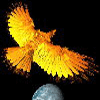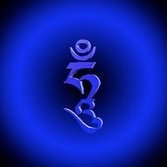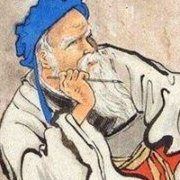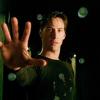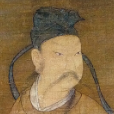Leaderboard
Popular Content
Showing most thanked content on 05/15/2019 in all areas
-
5 pointsNo apologies needed mate, I delete and edit routinely to accomodate my inner space's needs. And while I don't have many answers these days, in their place there's empathy, love and plenty of time to listen. Peace.
-
4 pointsThere are people here who care about you and consider you to be their friend. If you do not want to share publicly, reach out privately or talk to someone in your daily life. Keeping everything all bottled up is sometimes not a good thing. You are in my thoughts.
-
3 pointsThanks to all who posted here, its made me feel a lot better. Have many out of the ordinary experiences at the moment, and because its all very new and uncharted territory, I'm still getting to grips with handling it well. Many thanks for all your kind and meaning full words. Peace to you all,
-
3 pointsYes, please reach out if you need. My door is always open - as are most people’s here.
-
3 pointsStart here: Confucius (/kənˈfjuːʃəs/ kən-FEW-shəs;[1] 551–479 BC) was a Chinese philosopher and politician of the Zhou dynasty. The philosophy of Confucius, also known as Confucianism, emphasized personal and governmental morality, correctness of social relationships, justice and sincerity. Etc. -VonKrankenhaus
-
3 pointsI feel very sorry for anyone taking this acquired mind too seriously. Oh How I weep!
-
3 points
-
3 pointsOh no ..... us magicians dont have human teachers ! You would not get very far with human teachers . NO WAY you can learn stuff like that ' from books ' . It is a curious video title though .... 'entities' .... ?
-
2 pointsI was up for a popcorn-eater today and went to see the Avengers (4th incarnation, I think). I walked out of it as soon as the popcorn was gone. Severely disjointed movie.
-
2 points@steve makes a valid point about "how can discussing all of knowledge not include tangential rambling"... Turiya is a word that literally means "The Fourth" (or the Fourth state, beside Waking, Dreaming and Deep Sleep). But it is actually the "blackboard" (as you so aptly put it) and the One and Only, really. Different means for different levels of practice. I usually don't write, words are written through me Think of it this way -- Some people just need to hear about Nonduality once and they become realized. Others spend years on practices and don't get it. Working with a personal deity helps us dissolve our self-imposed limitations (separate body, separate mind, limited imagination, etc etc). It is a step towards non duality between self and Deity. Which teaches a valuable lesson when it clicks (and I have to thank @Jeff for showing me that most succinctly).
-
2 pointsIn discussing the core of all knowledge, how can they be anything but?
-
2 pointsThat's pretty cool. I have a hard time believing things like this when it's so easy to edit videos and add effects...but if one could use their own camera filming him, and immediately after see this, that would be interesting.
-
2 pointsIMO, you should be reading a lot more of legalist thought and alignment with Daoism.. but we did that before. https://www.thedaobums.com/topic/38060-legalism-vs-daoism/ Not sure that answers your questions but it should broaden the thought.
-
2 pointsI would recommend The Creation of Daoism by Paul Fischer https://digitalcommons.wku.edu/phil_rel_fac_pub/14/
-
2 pointsI totally understand... you try to help, and some people just don't want it or care. It can be frustrating. I do feel like the desire to help others is one that should be nurtured, but the *expectation* that the other person will accept help must be let go, less you lose the desire & care for others, and replace it with cynicism. It's ultimately what the spiritual practice is all about, of course. Learning to accept people who push all of your buttons, all at once. It's not letting them walk all over you, but rather it's not letting them take up space in your mind, rent free. The TTC 7 is good food for thought: It has no desires for itself; thus it is present for all beings. The Master stays behind; that is why she is ahead. She is detached from all things; that is why she is one with them. Because she has let go of herself, she is perfectly fulfilled.
-
2 points
-
2 points
-
2 points
-
2 pointsI think emptying the heart of worries and happiness, love and anger, and desire for profit, is not actually achieved by commonplace morality though. Morality is a restriction on these things, more like a suppression of them, the clearing that is being referred to reminds me more of clearing accumulated conditioning and returning to a clear slate. Re: Cultivation, how does the Neiye refer to its method in this line from later in the text? Maybe a term can be agreed on from this. 修 心 靜 意 道 乃 可 得
-
2 pointsThat is similar to the teachings I received on the subject " " Yet, oh aspirant, let thy victories bring thee not Vanity, for with increase of Knowledge should come increase of Wisdom. He who knoweth little, thinketh he knoweth much; but he who knoweth much hath learned his own ignorance. Seest thou a man wise in his own conceit? There is more hope of a fool, than of him. " In my experience, the more I learn and know, throws up even more questions about what I dont know ! " ... Carlo Cipolla ( 'The Basic Laws of Human Stupidity' ) defines stupidity as ; " A stupid person is a person who causes losses to another person or to a group of persons while himself deriving no gain and even possibly incurring losses. " While an intelligent person finds solutions that cause gain to others AND themselves at the same time . Carlo warns us hiw dangerous stupid people are ; " It is not difficult to understand how social, political and institutional power enhances the damaging potential of a stupid person. But one still has to explain and understand what essentially it is that makes a stupid person dangerous to other people - in other words what constitutes the power of stupidity. " Essentially stupid people are dangerous and damaging because reasonable people find it difficult to imagine and understand unreasonable behaviour. An intelligent person may understand the logic of a bandit. The bandit's actions follow a pattern of rationality: nasty rationality, if you like, but still rationality. The bandit wants a plus on his account. Since he is not intelligent enough to devise ways of obtaining the plus as well as providing you with a plus, he will produce his plus by causing a minus to appear on your account. All this is bad, but it is rational and if you are rational you can predict it. You can foresee a bandit's actions, his nasty manoeuvres and ugly aspirations and often can build up your defenses. " http://harmful.cat-v.org/people/basic-laws-of-human-stupidity/ Hmmm . Perhaps that is the 'reversed' Fool .... not the better side of the energy. When not averse, I see the Fool as more than what the external world may see of him; He is Lao Tsu, at times : Khidr at others (in his 'trickster' role ) and most definitely, Nasrudin ! The Missed Appointment A philosopher made an appointment with Nasrudin to have a scholarly discussion. When the day came, the philosopher dropped by Nasrudin's house as planned. However, Nasrudin wasn't home. The philosopher angrily took his pencil out of his pocket, wrote "Asshole" on Nasrudin's door, and then left Nasrudin finally came home later and saw this. He quickly realized that he had missed his appointment, and he darted off to the philosopher's house. "Forgive my error," Nasrudin told the philosopher when he got there. "I totally forgot about our appointment today. But when I got home and saw that you had written your name on my door, I came here as fast as I could."
-
2 pointsNo one is an absolute fool really. Everyone is at varying levels of knowing. So “foolishness” or “intelligence” is a relative thing. It also varies from day to day. For example, on some days I feel really smart and others I feel really foolish. The feeling foolish bit usually goes hand in hand with whether I ended up succumbing to the propensity to do something compulsive. We can be compassionate towards someone who knows less. My teachers always did/do that with me.
-
2 pointsI try to approach this like silent thunder. When I encounter someone I find to be stuck, opinionated, fixed, unwilling to see an alternative perspective, I do my best to see how I may seem just like that to others, given any particular context or set of circumstances. Whatever view I hold, no matter how convinced I am of its veracity, is limited and relative. When I can see this directly, my irritation, frustration, or impatience towards the other person dissolves and some degree of understanding and compassion remain. Trying to see the other’s point of view, no matter how ridiculous or far-fetched, teaches me far more than simply dismissing them as fools and idiots. The US political landscape has helped me enormously in this regard. That said, it has also taught me to take the approach of not engaging, debating, or arguing, unless I am willing to pay the price. And to be clear, this is my intention, not something I have yet mastered.
-
1 pointIn one of my older articles, I had discussed the topic of the four levels/categories of knowledge. https://www.medhajournal.com/close-encounters-of-the-fourth-kind/ and also presented a model that maps Zen and Advaita Vedanta alonf those lines. https://www.medhajournal.com/consciousness-according-to-zen-buddhism-and-how-it-relates-to-advaita-vedanta/ Also there was an associated TDB post around the topic — The four levels of knowledge, map to the four levels in which awareness seems to exist (waking/dreaming/deep sleep and Turiya). They also map to the “four bodies” ie physical, subtle, causal and nondual. The following should apply for spiritual as well as creative works — I posit that written words (or typed for that matter) fall under the category of knowledge that maps to the subtle body. In other words, the written word rises from the astral plane. In my experience I found that “reading” seems to work at the astral level as well. These are “closer” to nondual silence than the spoken words are. That is the reason why ideas as presented in books etc take on a far more powerful force than when spoken. There are exceptions of course. For instance in ancient times, the words were spoken words, but empowered by masters who operated from the causal and/or nondual levels. Just some preliminary thoughts. Please avoid tangential ramblings in your responses.
-
1 point
-
1 pointMaybe you can say "according" to Dao. But Dao is not a place, so no "within". Dao is not a mother or father, and so "gives birth" to no thing. Dao just mean "Way" like saying "The Way it Goes" or "As it so happens". It is not a thing or place or force or any other physical entity. So Dao "itself" cannot "do" anything. -VonKrankenhaus
-
1 pointsorry for deleting second time in a week, I thought better of posting this..... should deal with problems myself.. Peace
-
1 pointIn my humble opinion, this is what the sages meant when they suggested that we should connect with, and develop a personal relationship with an “Ishta Devata” (Personal Deity). With regular practice, we can not only develop self-surrender (to the Deity) but also expand our conscious mind beyond the limitations imposed by our senses. Or in other words, subtler senses will start manifesting, which open us up progressively to a much vaster and much more fluid existence. I'll do my best to avoid tangential rambling I like the fact that you supply a name to that blackboard that we write our lives upon - Turiya. I don't think I've heard that word before. Nice article, Dwai. The above statement from your article (In my humble opinion, etc) you suggest developing a personal relationship with a personal deity. Wouldn't this further reinforce duality?
-
1 pointThis is wonderful! I loved hearing 'Kit' Snow sing Wildling...you make my heart sing. And Peter Dinklage singing 'I'm still going strong'. And the stare down between Ramsey and Theon Greyjoy was priceless. As I mentioned earlier, I'm rewatching the whole thing. something came to me last night which I had missed the first time around. When Arya is being trained in Bravos to be No One, she is experiencing a component of the enlightenment process. To be No One would be to lose all egoic identity. Interesting the methods they used to bring that on. First, sweeping floors for weeks would be a good start to cracking her ego. Next, the preparation of the dead bodies - at first she was impatient, but over a period of time, she became patient and exhibited a true reverence for the task she was doing, the mindful washing of the bodies. And then when they rendered her temporarily blind and she had to beg for money out in the streets (not to mention being attacked periodically by a really strange girl with a big stick). Aah, the things we do to become a truly great assassin…..it took me 2 or 3 years. She learns so fast.
-
1 point
-
1 pointWhy not? I'm interested to read a brief review from someone who wasn't into it, if you are willing.
-
1 pointYes, we all know how you dislike the forum. You mention it a lot.
-
1 pointI don't mind the term proto-daoist so much. Its just a device to refer to what came before and lead up to what we previously understood to be the origin and standard for daoism, the DDJ. As long as we keep that in mind then we should be OK. After all, aren't the terms daoism and daoist relatively recent designations themselves? But what do these earlier and contemporary other texts represent? I have to believe that there is some sort of continuity running from antiquity through to today ... from the Yijing through "proto-daoist through Laozi, Chuangzi, Leizi all the way up to current dates. So, what we are talking about as proto-daoist are just a phase along an evolutionary procession. A lesson that was driven home for me came from the Cantong qi. Its main lesson was to show that these collections of things are unified in their being part of a greater continuity. So, I am not too concerned over discussions that seem to want to classify things as belonging to this or that, being exclusive or inclusive of this tradition or that. The real questions involve what we can learn from these things and does it help us as individuals to construct and practical understandings of our realities.
-
1 point
-
1 pointpiece of advice, don't get too attached to anyone. this will explain everything.. in song
-
1 pointhttps://en.wikipedia.org/wiki/Heyoka This is where the term "sacred clown" comes from. I took this part from wiki because I found it interesting. Really fascinating role to play (whether aware of it, in the case of the heyokha, or maybe not in others...)
-
1 pointHi vonkrankenhaus, Then 無爲 is more likely to encourage... 無-words ...? - Anand
-
1 pointDo you actually have a volunteer that finds you all the movies you want to see?
-
1 pointOMG. You're going to love it. Rest easy the first 3 or 4 episodes, like always. It seems to fly around, but it settles in real nicely.
-
1 point@dwai Apparently Nasrudin didn't consider the appointment important enough to note it down. If he is that forgetful. So while he could call the philosopher an asshole for not considering he could also have had an accident or such, Nasrudin himself also qualifies for that label for rejecting responsibility for his carelessness and turning it into an intellectual jerkoff (the latter which confirms the former). Instead he could have asked about the philosopher's day and life that caused him to get that upset about it. Because it can also imply that the philosopher valued the appointment so important for his life that that is why the missed opportunity infuriated him. It might also convey that the philosopher himself has higher standards of reliability, which is commendable. Nasrudin maybe should value the importance of such appointments higher if he is that prone to passive-aggressiveness. (Quite the overt type even.)
-
1 point
-
1 point
-
1 point11. When your body is not aligned, The inner power will not arrive. When the centre lacks stillness, The heart-mind will not be well-ordered. Align your body and assist inner power— Then it will gradually arrive on its own. I'm sure that gathering, transforming and so on are involved. I'm not saying the 'chest/heart' is not the MDT in some sense - I'm just saying the term MDT is specific to Neidan because it uses alchemical terms and images and this is because of the idea of creating the elixir or pill - and hence parts of the subtle body become fields in which to do this (Dantien). The Neiye is much older than the Neidan and probably is one of its antecedents. Because of this, to respect the text, I prefer to let the text speak to me without imposing any supposed framework upon it if you see what I mean. I learned this reading Egyptian texts - upon which many impose theories about what they mean. But if you suspend all theory and just listen to what the text itself is saying, using only references from the same text so it is self-consistent, clearer insights emerge into what is being said. To give it a fancy name this is called a phenomenological approach to textual analysis. If you start to introduce terms external to the source text the clarity of the original message is lost. However afterwards when understanding has been gained it is possible to look outside for comparison and so on. Obviously this approach is for me - I'm not trying to tell you that you have to approach things in this way if you don't want to. But I am just explaining why I am picky about certain terms and so on.
-
1 pointBy the way - I don’t mean to imply that they're completely ineffective - just that the efficiency is reduced when specific factors are left out... And there’s also the issue of a transmission from a teacher that has already mastered the skill they’re teaching - which can 10X the efficiency still... My advice is always to find a decent teacher - that’s the easiest, safest, most efficient way to progress - by far.
-
1 pointso these are the same people as "the shining ones " I assume ? great stuff, wish there was more on them
-
1 point”This has led many to believe that there are no dwarf women...” ”Its the beards.”
-
1 pointBrilliant topic, especially the flow of Awen bit! Love the talk of ancient beings of light Cheers, Edward
-
1 pointAnd oh yeah. Stay away from Chia, until you have a solid enough foundation that you can filter out most of what he's saying and find things that might be of interest to you. He tends to make things way too complicated. Cheers!
-
1 pointI really don't see any relationship between being a Taoist and financial comfort. Taoism is not about wealth or poverty, at least not in a material sense. One can be rich and a Taoist. One can be poor and a Taoist. One can live surrounded by many people in a bustling community and be a Taoist. One can live as a hermit, sequestered in the mountains and be a Taoist. The defining character of a Taoist is relation to Tao - nothing more, and nothing less. Beyond that are all personal preferences.
-
1 pointThe reason I didn't post any of them is because everyone who "researches" them has alternative motives and pushes agendas I don't necessarily agree with. It is the base facts of their research that interest me (i.e. finding giant red haired skeletons and mummies) and not everything else they try to say their finds mean. Case in point, the guy who has done the most research on the subject, Steve Quayle, is using his research to prove the existence of the Bible's Nephilim. I'll post a link to his stuff (http://www.genesis6giants.com/), but I do not agree with his interpretations at all but the base facts of his research are what interests me. You might have to get this book Genesis 6 to really see the extent of his research (it's newspaper articles from around the world of people who dug up giants while tilling fields or breaking ground for new buildings). Another interesting subject is the Mississippi Mound Builders, Many of the American giants have been found in these mounds and very early researchers of them believed them to be made by a race of giants who lived in the Americas before the Native Americans (Traditions of the De-Coo-Dah http://books.google.fr/books?id=cMMSsVLlrxsC&printsec=frontcover&source=gbs_ge_summary_r&redir_esc=y#v=onepage&q&f=false). It's a very quasi-archeological subject with no real unbiased research going into it yet so you have to take from it what the base facts are and try to ignore the authors biases. Edit: Here's another site that links to a lot of stuff (http://www.sydhav.no/giants/giants.htm). But once again, I don't believe in it all, you really have to sift through a lot of rubbish to find the base facts of it all.
-
1 pointG'morning Heath (-: I am not a member of OBOD, but like you I explored it thoroughly. I'm always on the lookout for something within relative reach to participate in that lines up with my own ideas...lol. Of course, the core of this 'same Thing' can be found in all traditions, within their own depths, but alas - the top layers of required interactions isn't my cup of tea. I love to sit in the back of a church to inhale the music and spiritual energy, but would not do well in their 'social functions', if you know what I mean. The Ovate grade appealed to me as well.. yet the more I looked into it, it became clear I was already doing all those things and more - so I let that pass by. Besides, you and I already have a teacher for these things. Which Black Elk book did you order? The one I quoted is good, and the best one to experience his original vision is "Black Elk Speaks, by John G. Neihardt".


